Understanding Chicken Necks For Dogs
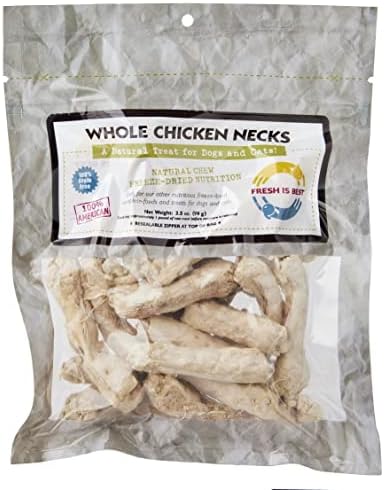
Chicken necks are a widely used raw food option for dogs. They are a natural and nutritious treat that can offer several benefits to your furry companion. Chicken necks are rich in protein, which is crucial for muscle growth, repair, and overall canine health. They also provide essential nutrients for a healthy coat and skin. However, it’s important to remember that chicken necks should be part of a balanced diet that includes other protein sources, vegetables, and grains (if appropriate). Always consult your veterinarian or a canine nutritionist to ensure your dog’s diet is well-rounded and meets their specific needs.
Nutritional Value Of Chicken Necks For Dogs
Chicken necks are packed with essential nutrients that can benefit your dog’s overall health. They are rich in protein, which is crucial for muscle growth and repair. Protein also helps support a healthy immune system and aids in digestion. Additionally, chicken necks contain chondroitin and glucosamine, which promote joint health and can prevent or alleviate arthritis symptoms. These natural treats also provide vitamins and minerals, such as calcium, phosphorus, and magnesium, which are important for bone health. Overall, incorporating chicken necks into your dog’s diet can provide them with a delicious and nutritious source of essential nutrients.
Benefits Of Including Chicken Necks In Your Dog’s Diet
Including chicken necks in your dog’s diet can provide numerous benefits. Firstly, they are an excellent source of protein, which promotes muscle growth and repair. Additionally, chicken necks contain chondroitin and glucosamine, which support joint health and can alleviate arthritis symptoms. They also supply essential vitamins and minerals like calcium, phosphorus, and magnesium, which are crucial for maintaining strong bones. Moreover, chewing on chicken necks can help improve your dog’s dental health by naturally cleaning their teeth and gums. Overall, adding chicken necks to your dog’s diet can contribute to their overall well-being and longevity.
How To Safely Feed Chicken Necks To Your Dog

To safely feed chicken necks to your dog, it is important to prepare and portion them correctly. Remove the skin and trim off any excess fat before cooking the necks. Cook them thoroughly using methods like slow or pressure cooking to ensure the bones become soft and safe to eat. It is essential to monitor your dog while they are eating chicken necks to prevent choking or any other potential hazards. Always consult with your veterinarian before introducing chicken necks to your dog’s diet to ensure it is suitable for their specific health needs.
Preparation And Portioning Of Chicken Necks
To ensure the safety and proper portioning of chicken necks for your dog, it is essential to prepare them correctly. Start by removing the skin and trimming off any excess fat to prevent an overload of omega-6 fatty acids. This will help maintain a balanced diet for your pup. When it comes to portioning, consider your dog’s size and dietary needs. Smaller dogs may require smaller portions, while larger dogs may need more substantial servings. Consult with your veterinarian to determine the appropriate portion size for your dog to ensure they are getting the right amount of nutrients from the chicken necks.
Monitoring Your Dog While Eating Chicken Necks
When feeding your dog chicken necks, it is important to closely monitor them while they eat. Keep an eye out for any signs of choking or difficulty swallowing. Dogs should always be supervised during mealtime to ensure they are properly chewing their food and not gobbling it down too quickly. Additionally, check for any signs of gastrointestinal distress such as vomiting or diarrhea after consuming chicken necks. Pay attention to your dog’s overall health and behavior to ensure they are tolerating the chicken necks well. If you notice any concerns, consult with your veterinarian for further guidance.
Health Considerations When Feeding Chicken Necks
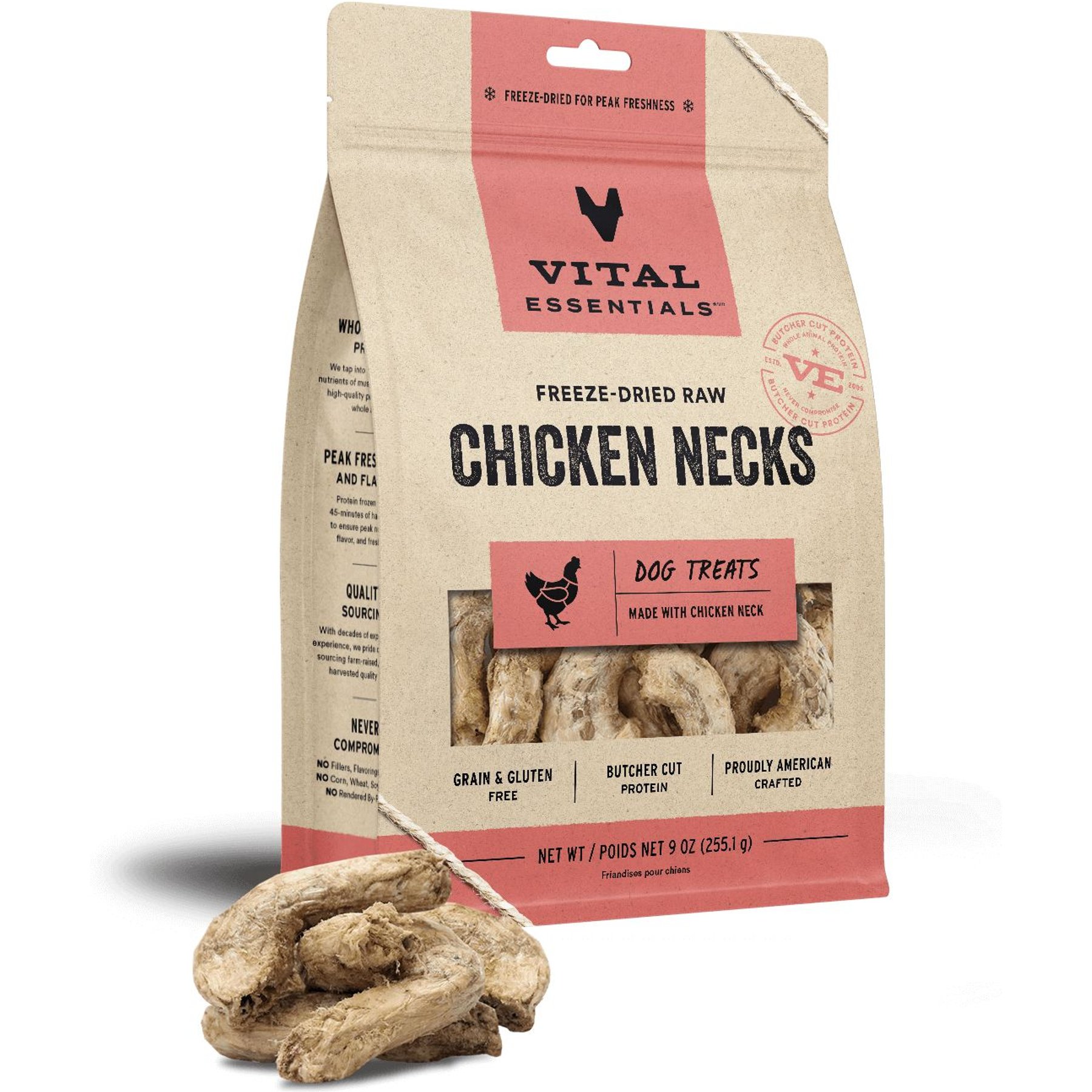
When feeding your dog chicken necks, there are a few important health considerations to keep in mind. Firstly, chicken necks are bones, and some dogs may have difficulty digesting bones or may be prone to choking. It is crucial to monitor your dog while they eat chicken necks to ensure they are chewing properly and not swallowing large pieces. Additionally, chicken necks are high in fat and may not be suitable for dogs with pancreatitis or other fat-sensitive conditions. It is always best to consult with your veterinarian before incorporating chicken necks into your dog’s diet to ensure it is safe and appropriate for their individual health needs.
Potential Risks And Precautions
When feeding chicken necks to your dog, it is important to be aware of potential risks and take necessary precautions to ensure their safety. One potential risk is the choking hazard presented by the bones in chicken necks. It is crucial to always supervise your dog while they are eating and consider appropriately sizing the neck to match their chewing ability. Swallowing chicken necks whole can also lead to intestinal blockages. To minimize these risks, make sure to only feed chicken necks that are suitable for your dog’s size and ensure they are chewing thoroughly before swallowing. Consulting with your veterinarian can provide further guidance on how to safely feed chicken necks to your furry friend.
Consulting With Your Veterinarian Before Feeding Chicken Necks
If you are considering including chicken necks in your dog’s diet, it is always a good idea to consult with your veterinarian first. Your vet knows your dog’s specific health needs and can provide valuable guidance on whether chicken necks are appropriate for your furry friend. They can also help you determine the right portion size and frequency of feeding chicken necks. Additionally, your vet may have specific recommendations based on your dog’s age, breed, and any existing health conditions. Taking the time to seek professional advice ensures that you are making informed decisions about your dog’s nutrition and overall well-being.
Chicken Necks Vs. Other Dog Treats
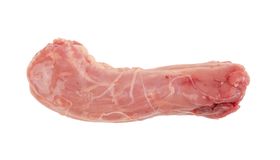
When it comes to choosing dog treats, chicken necks stand out among the rest. Unlike many commercial dog treats that are often loaded with artificial fillers and preservatives, chicken necks are all-natural and provide a wide range of benefits. They are a great alternative to processed treats that may contribute to weight gain, allergies, and digestive issues in dogs. Chicken necks offer a natural source of protein, chondroitin, and glucosamine, which support joint health and mobility. Additionally, their texture and shape promote dental health by naturally cleaning your dog’s teeth as they gnaw. So, why settle for mediocre treats when you can nourish your pup with wholesome chicken necks?
Comparing Chicken Necks With Commercial Dog Treats
When comparing chicken necks with commercial dog treats, it becomes clear that chicken necks offer numerous advantages. Unlike many commercial treats that are loaded with artificial fillers and preservatives, chicken necks are all-natural and provide a wide range of benefits. While commercial treats may contribute to weight gain, allergies, and digestive issues in dogs, chicken necks offer a natural source of protein, chondroitin, and glucosamine, which support joint health and mobility. Additionally, the texture and shape of chicken necks promote dental health by naturally cleaning your dog’s teeth as they gnaw. Make the switch to wholesome chicken necks for a treat that your pup will love and benefit from.
Incorporating Chicken Necks Into Your Dog’s Balanced Diet
Incorporating chicken necks into your dog’s balanced diet is a great way to provide them with quality nutrition and a delicious treat. Chicken necks can be fed as a part of their regular meals or given as an occasional snack. It is important to remember that chicken necks should not be the sole source of their diet and should be balanced with other nutrients. Including a variety of proteins, carbohydrates, and vegetables in your dog’s diet will help ensure they receive all the essential nutrients they need for optimal health. Always consult with your veterinarian to determine the appropriate portion sizes and frequency of feeding chicken necks to your dog.
Top Chicken Neck Products For Dogs
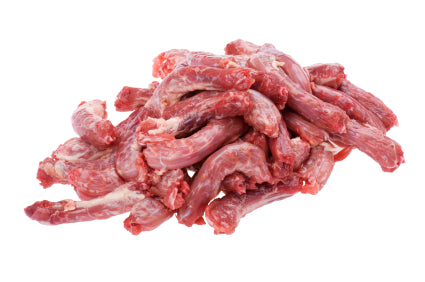
When it comes to finding the best chicken neck products for your furry friend, there are a few top brands that stand out. These brands offer high-quality chicken necks that are not only delicious but also provide essential nutrients for your dog’s overall wellbeing. Some popular brands offering chicken necks for dogs include Campfire Treats and BJ’s Raw Pet Food. These brands prioritize sourcing high-quality ingredients and ensuring that their chicken necks are safe and nutritious for your pup. Look for chicken neck products that are free from additives and preservatives, and that have received positive reviews from dog owners.
Popular Brands Offering Chicken Necks For Dogs
When it comes to finding the best chicken neck products for your furry friend, there are a few top brands that stand out. These brands offer high-quality chicken necks that are not only delicious but also provide essential nutrients for your dog’s overall wellbeing. Some popular brands offering chicken necks for dogs include Campfire Treats and BJ’s Raw Pet Food. These brands prioritize sourcing high-quality ingredients and ensuring that their chicken necks are safe and nutritious for your pup. Look for chicken neck products that are free from additives and preservatives, and that have received positive reviews from dog owners.
Features To Look For When Choosing Chicken Necks For Your Dog
When choosing chicken necks for your dog, there are a few features you should look for to ensure you’re getting a high-quality product. Firstly, opt for chicken necks that are sourced from trusted and reputable brands. Check for labels that indicate the chicken necks are free from additives, preservatives, and artificial ingredients. Additionally, choose chicken necks that are properly processed, such as being air-dried, to retain their nutritional benefits. Consider the size and texture of the chicken necks to ensure they are appropriate for your dog’s breed and chewing abilities. Lastly, read reviews and feedback from other dog owners to get an idea of the overall quality and satisfaction with the product. By considering these features, you can select the best chicken necks to keep your furry friend happy and healthy.
Conclusion
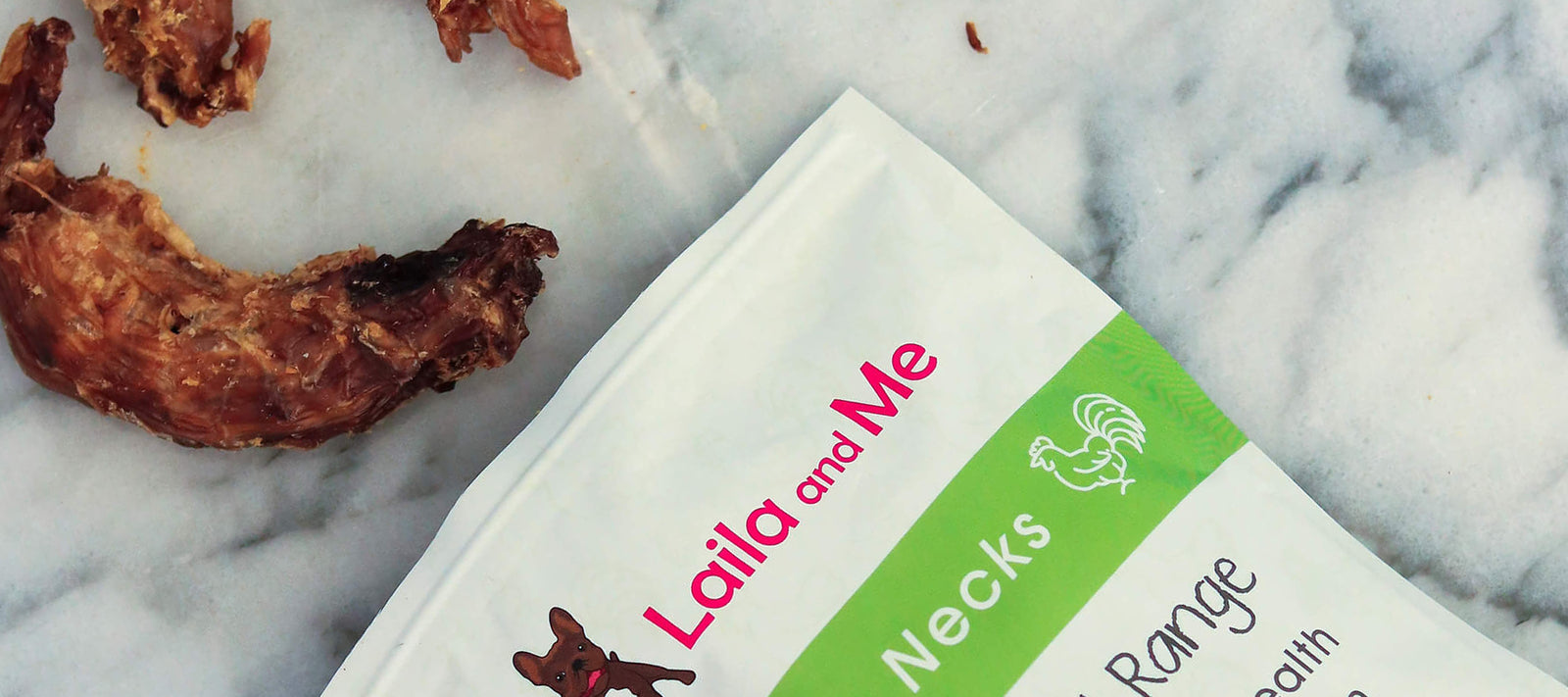
In conclusion, chicken necks can be a safe and healthy addition to your dog’s diet when fed in moderation and with proper precautions. They are rich in protein, calcium, and other essential nutrients that can benefit your furry friend. However, it is important to consult with your veterinarian before introducing chicken necks into your dog’s diet to ensure it is appropriate for their individual needs. Additionally, always supervise your dog while they are eating chicken necks to prevent any choking hazards.
Summarizing The Benefits Of Including Chicken Necks In Your Dog’s Diet
Including chicken necks in your dog’s diet can provide several benefits. Chicken necks are a great source of protein, which is essential for muscle growth and repair. They also contain chondroitin and glucosamine, which help support joint health and mobility. Furthermore, the gnawing action required to eat chicken necks can help clean your dog’s teeth and strengthen their jaw muscles. By incorporating chicken necks into your dog’s diet, you can provide them with a tasty and nutritious treat that promotes overall health and wellbeing. So, why not give your pup the nourishment they deserve with chicken necks?
FAQ About Chicken Necks For Dogs: Nourishing Your Pup The Right Way
Q: What are the benefits of feeding chicken necks to dogs?
A: Chicken necks are a great natural source of lean protein, essential fatty acids, and chondroitin for joint health. They also help improve dental health by reducing plaque and tartar buildup.
Q: How should chicken necks be prepared for dogs?
A: It is best to feed chicken necks raw to dogs as cooking may affect the bone structure. Always supervise your dog while they are eating to prevent choking hazards.
Q: How often should chicken necks be included in a dog’s diet?
A: The frequency of feeding chicken necks will depend on your dog’s size and dietary requirements. It is recommended to consult with a veterinarian to determine the right portion size and feeding schedule.
Q: Are there any risks associated with feeding chicken necks to dogs?
A: While chicken necks can be a nutritious addition to a dog’s diet, there is a risk of choking, especially for small dogs or those who tend to gulp their food. Always monitor your dog while they are eating to ensure their safety.
Q: Can puppies eat chicken necks?
A: Puppies can eat chicken necks, but it is important to ensure the necks are appropriately sized to prevent choking hazards. Consult with a veterinarian to determine the best feeding practices for puppies.
Q: Are there any alternatives to chicken necks for dogs?
A: If chicken necks are not suitable for your dog, there are other options such as chicken wings, turkey necks, or commercially available dental chews that can provide similar benefits. Be sure to choose safe and appropriate options for your dog’s size and dietary needs.

Duke City Kitchen, known for its fresh, simple, and delicious cuisine, has a rich history deeply rooted in the heart of the local food scene. Since its inception, Duke City Kitchen has been dedicated to providing an exceptional dining experience that celebrates the region’s flavors. Founded by a passionate group of food enthusiasts, Duke City Kitchen opened its doors with the vision of offering a welcoming space where people could gather to enjoy thoughtfully prepared meals made from the finest, locally sourced ingredients. This commitment to quality and community has been a driving force behind Duke City Kitchen’s success.